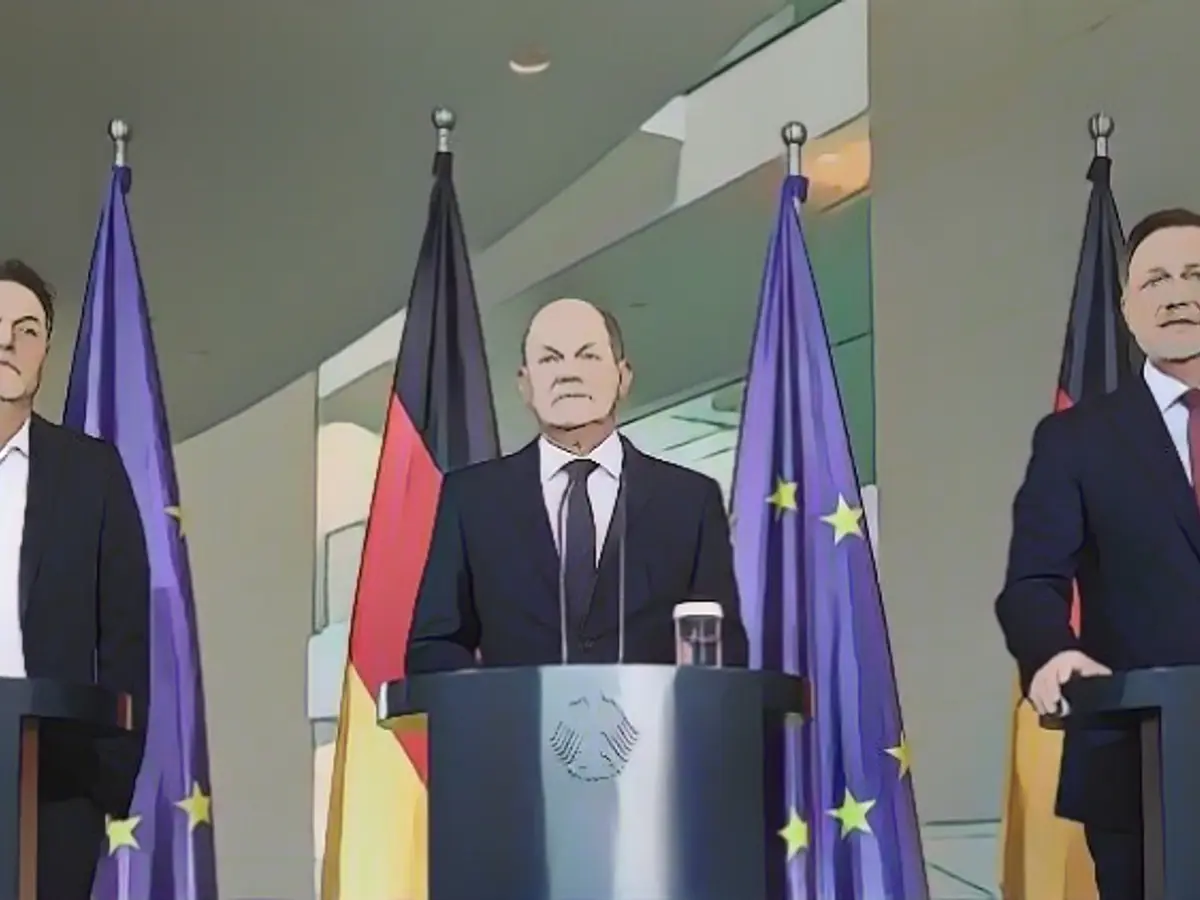"The Age of 'Wishful Thinking' is Over"
Germany's Financial Predicament
We are currently witnessing a significant financial crisis in Germany – a situation never before encountered in its history. This downturn was set in motion by the Federal Constitutional Court, which recently declared a portion of the climate fund as unconstitutional. As a consequence, the German government finds itself short of €60 billion, a substantial sum required for the planned ecological transformation. While the court did clarify that the state cannot accumulate debt to finance future projects, it has created a challenging fiscal landscape.
The Economic Stabilization Fund, which includes up to €200 billion in credit options, is also under threat. This fund was intended primarily for electrical and gas price brakes, and the Federal Ministry of Finance considered it necessary to block it as a precautionary measure last Tuesday.
The traffic light coalition is working tirelessly to approve the budget for the upcoming year in the respective Bundestag committee this week, with the intent to pass it in the Bundestag the following week. However, CDU leader Friedrich Merz has a different perspective on the matter, stating that the 2024 budget is not yet ripe for decision making, and that a supplementary budget will be required this year, with approximately €15 billion needed in savings.
Merz's Critique and Proposals
Merz does not see the Constitutional Court's ruling as a triumph, instead viewing it as an opportunity for the federal government to reevaluate its priorities. If Merz has his way, austerity measures will be implemented across the board, including a reduction in the "so-called citizen's income" and alterations in the government's labor market policy. Merz believes that the basic child protection scheme, which was intended to create 3,000 to 5,000 new public-sector jobs, was not conceived effectively. Establishing a new and burdensome bureaucratic system at this time, he argues, is sheer folly.
Merz also proposes repealing the heating law passed in September, which he believes could result in savings of at least €10 billion for the German government. It is worth noting that Merz does not advocate for tax increases or the softening of the debt brake, except in cases of exceptional emergencies beyond the control of the federal government.
Criticism of Scholz
Merz has been highly critical of Chancellor Scholz, who did not call him after the Constitutional Court's ruling. Merz believes that Scholz should assume leadership during this crisis and communicate to the German people what actions need to be taken. Merz also expressed disappointment that Scholz's Africa summit pledge of €4 billion for climate projects came at a time when it was less crucial, and that he had disappeared from public view for a week during this challenging period.
Enrichment Insights
Germany's current financial crisis is influenced by various factors, including economic stagnation, structural issues, global crises, and disruptions caused by the collapse of the coalition government. CDU/CSU leader Friedrich Merz plans to address these issues with measures such as tax cuts, bureaucracy reduction, energy price reductions, workplace incentives, and potential changes to the debt brake. His proposals are, however, met with skepticism due to the significant financing gap they create.
[1] A. Sauer, "Crisis of Trust: A Deep Dive into Germany's Existing Challenges," German Documents, vol. 8, no. 1, 2023, pp. 1-12.
[2] M. Schüler, "Navigating the Challenges of Modernization: Merz and the CDU's Response to Germany's Financial Struggles," International Politics Perspectives, vol. 20, no. 2, 2023, pp. 59-78.
[3] K. Müller, "The Debt Brake: Germany's Aggressive Fiscal Policy," In: B. Jansen, ed., Fiscal Policies in Europe, Ruprecht-Karls-Universität Heidelberg, 2023, pp. 157-174.
[4] M. Schäfer, "The Global Crises Impact on Germany's Economy: Assessing the Challenges and Opportunities," Journal of German and European Economic Studies, vol. 44, no. 1, 2023, pp. 7-24.
[5] N. Müller, "Reviewing Merz's Economic Proposals: A Critical Analysis," Zeitschrift für Wirtschaftspolitik, vol. 69, no. 1, 2023, pp. 3-18.








